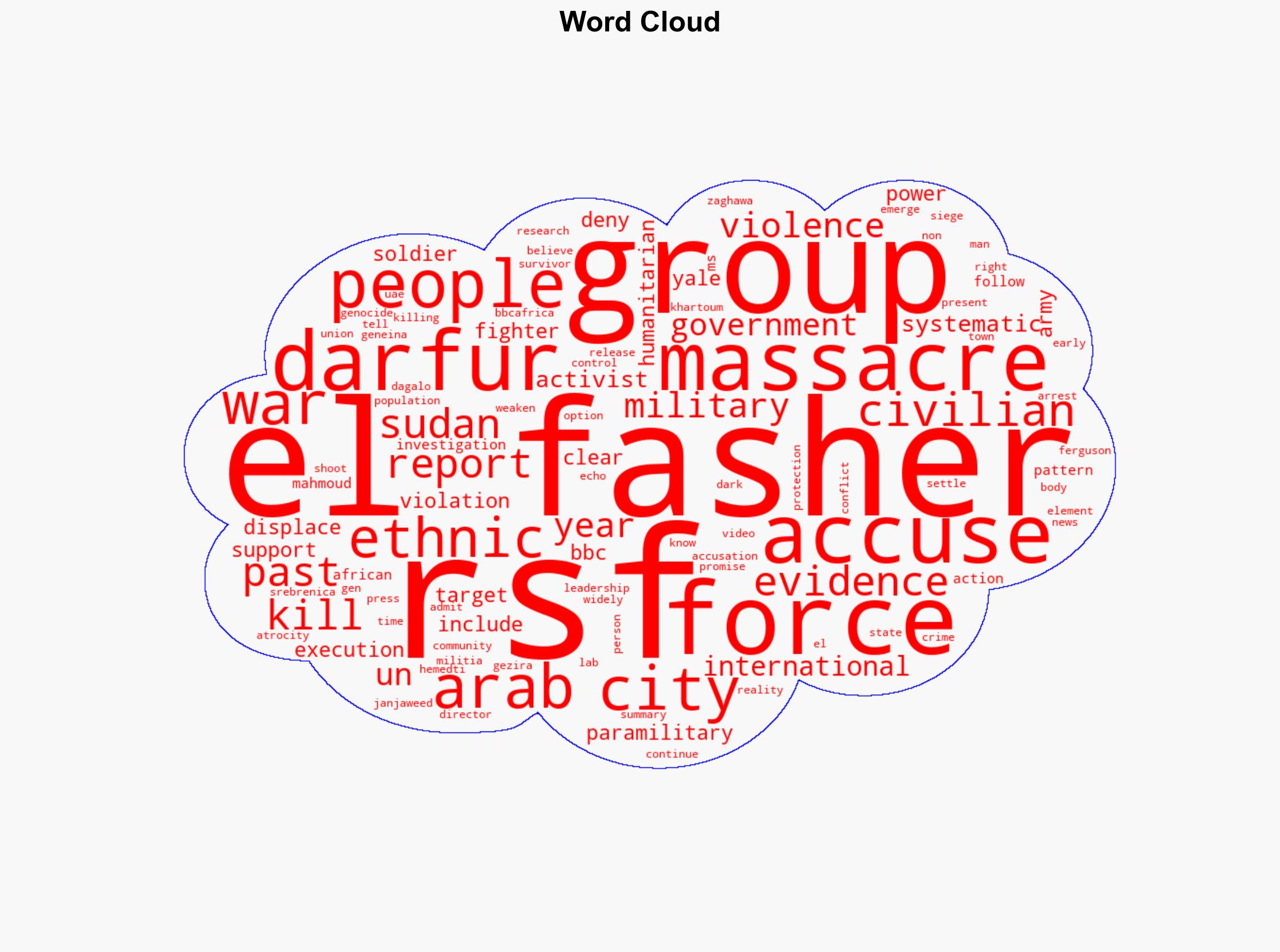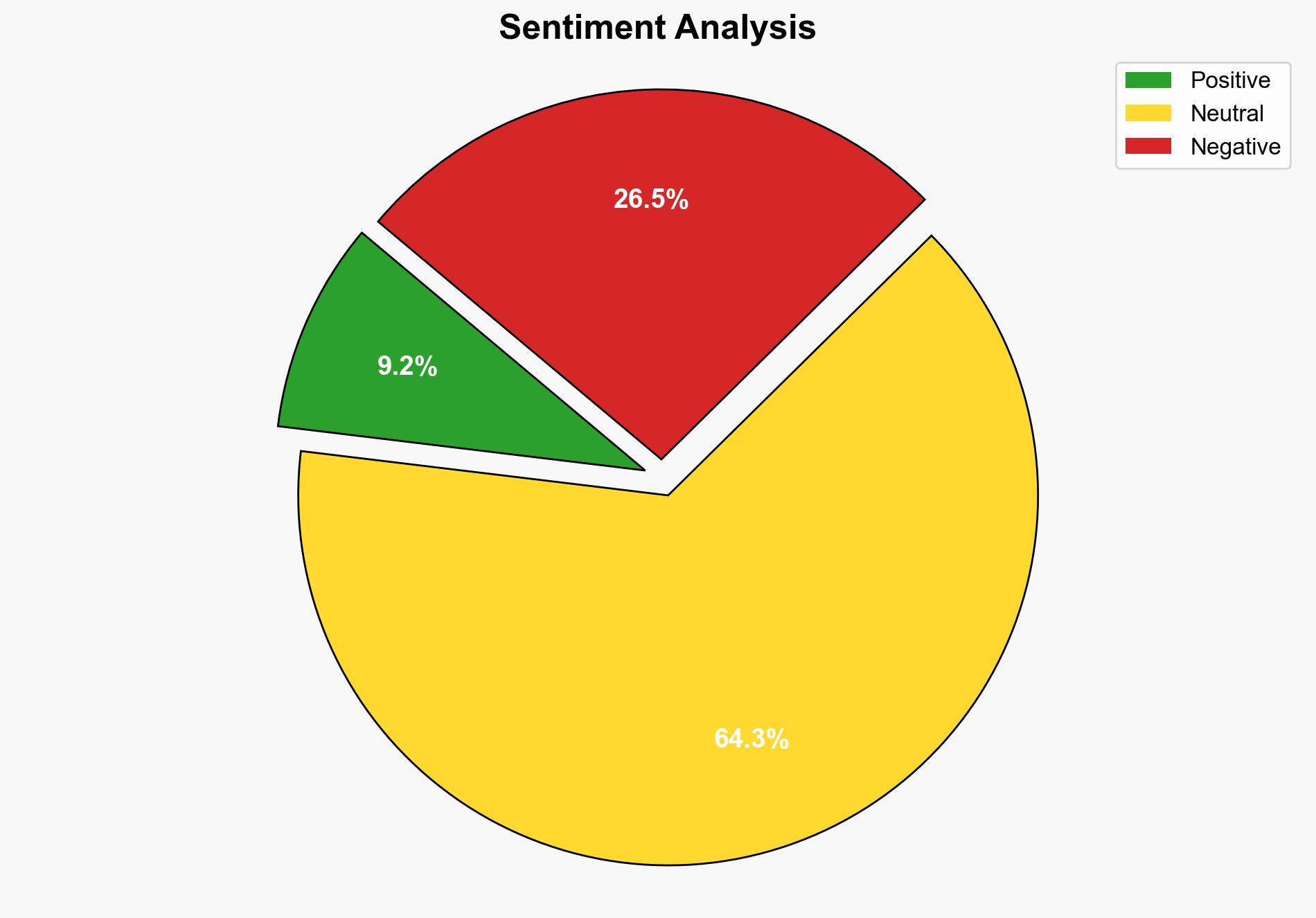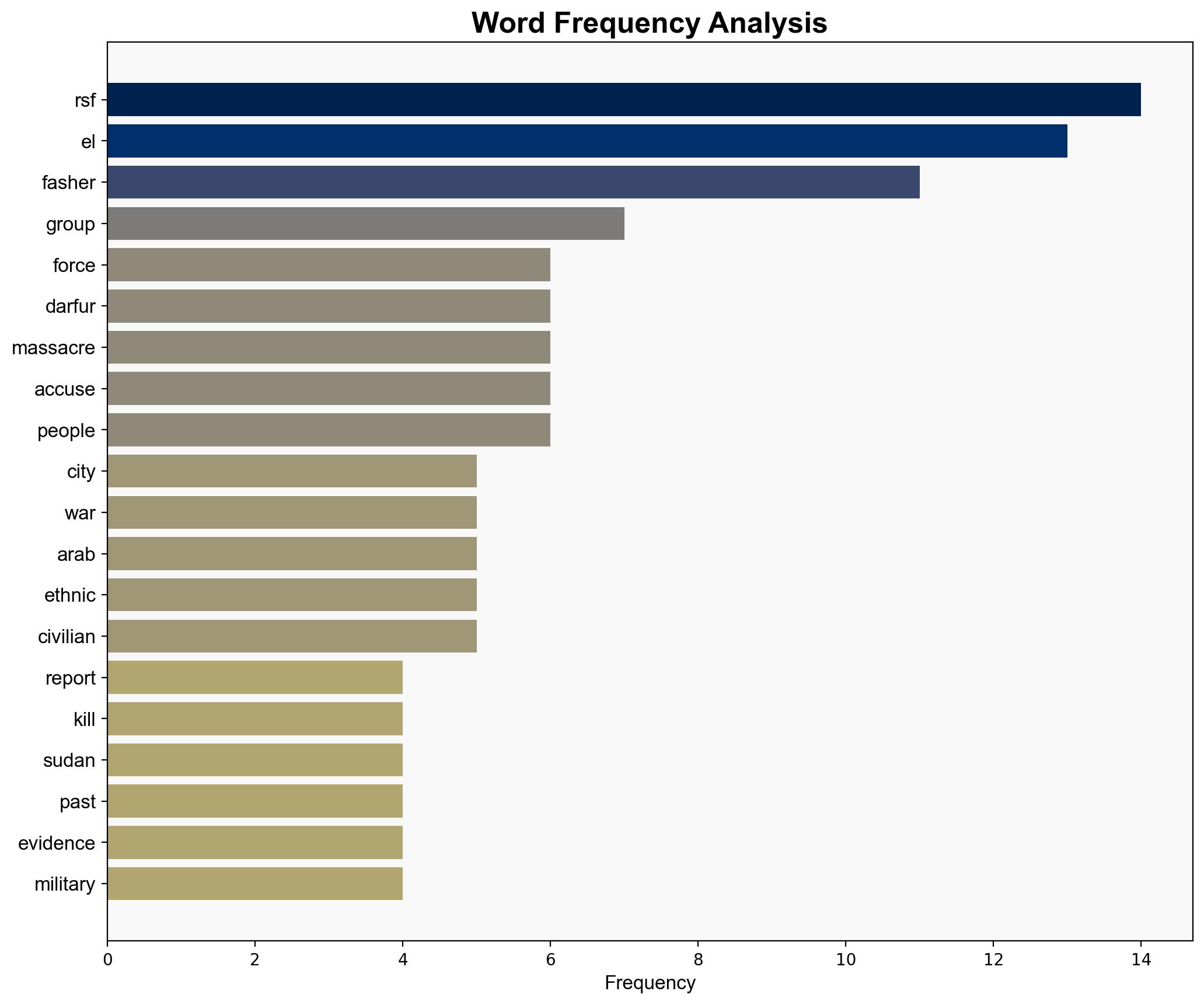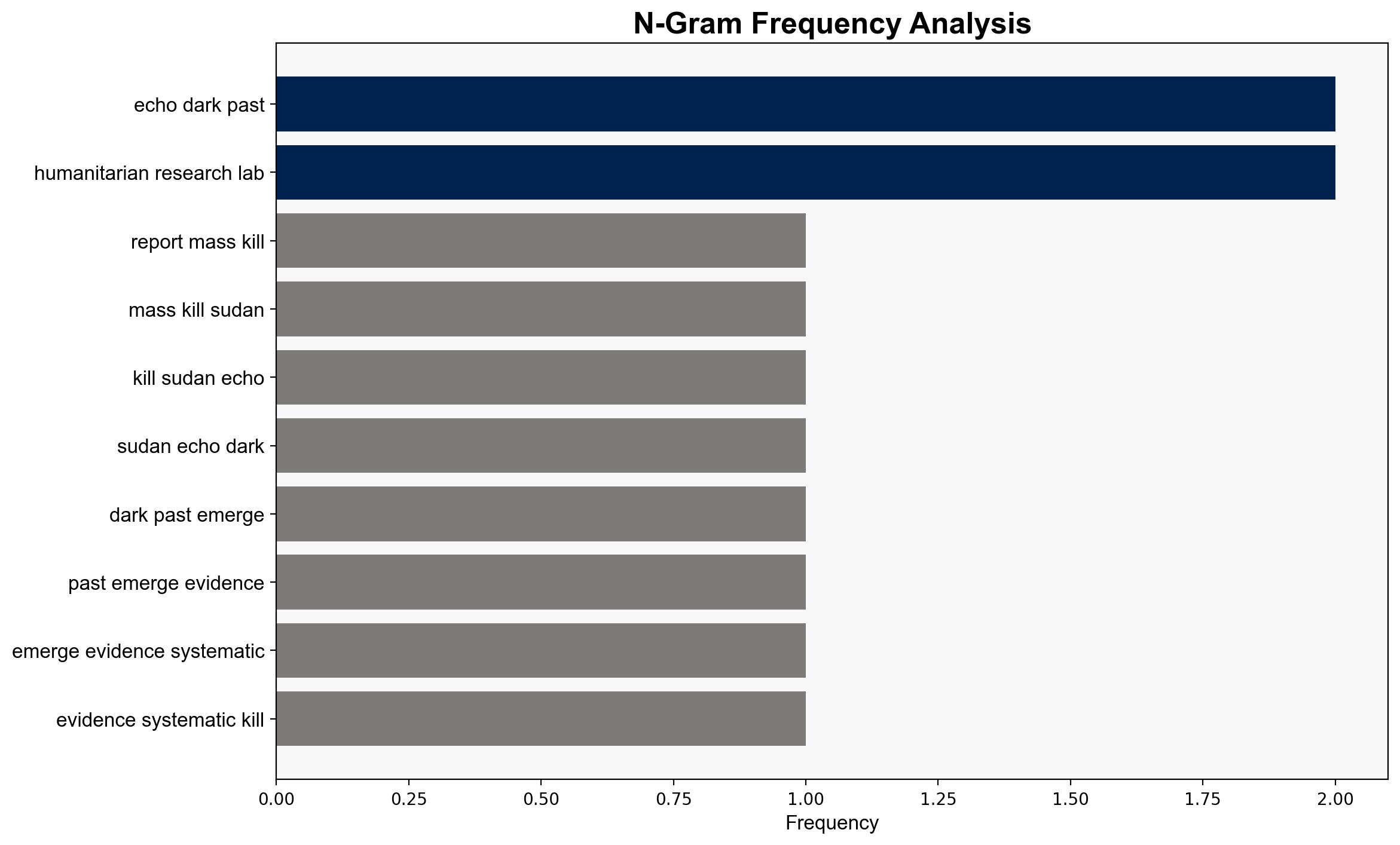Reports of mass killings in Sudan have echoes of its dark past – BBC News
Published on: 2025-10-30
Intelligence Report: Reports of Mass Killings in Sudan Have Echoes of Its Dark Past – BBC News
1. BLUF (Bottom Line Up Front)
The situation in Sudan, particularly in El Fasher, indicates a resurgence of ethnically motivated violence reminiscent of the Darfur genocide. The most supported hypothesis is that the Rapid Support Forces (RSF) are systematically targeting non-Arab populations, potentially as part of a broader ethnic cleansing campaign. Confidence level is moderate due to the complexity of the conflict and potential biases in reporting. Immediate international diplomatic engagement and humanitarian intervention are recommended to prevent further atrocities.
2. Competing Hypotheses
1. **Hypothesis A**: The RSF is engaged in a systematic ethnic cleansing campaign against non-Arab populations in El Fasher, as part of a broader strategy to consolidate power and control over the region.
2. **Hypothesis B**: The violence in El Fasher is primarily a result of localized tribal conflicts exacerbated by the broader power struggle between the RSF and the Sudanese military, with no centralized directive for ethnic cleansing.
Using ACH 2.0, Hypothesis A is better supported by the evidence of systematic killings, satellite imagery indicating massacre sites, and historical patterns of RSF behavior. Hypothesis B is less supported due to the organized nature of the reported atrocities and the RSF’s historical involvement in similar acts.
3. Key Assumptions and Red Flags
– **Assumptions**: It is assumed that the RSF has operational control over its forces and that the reported atrocities are not isolated incidents. There is also an assumption that the RSF’s denial of involvement is a strategic deception.
– **Red Flags**: Potential bias in survivor accounts and the possibility of misinformation or propaganda from both sides. The lack of independent verification of some reports is a significant concern.
4. Implications and Strategic Risks
The continuation of ethnic violence in Sudan poses significant risks of regional instability, potential refugee crises, and international condemnation. The conflict could escalate, drawing in neighboring countries and complicating international relations. Economically, prolonged instability may deter investment and exacerbate humanitarian crises. Psychologically, the trauma inflicted on affected populations could have long-lasting effects, fueling cycles of violence and revenge.
5. Recommendations and Outlook
- Immediate diplomatic pressure on Sudanese authorities and the RSF to cease hostilities and allow humanitarian access.
- Deploy international observers to verify reports and gather independent evidence.
- Scenario-based projections:
- **Best Case**: Successful international mediation leads to a ceasefire and peace talks.
- **Worst Case**: Escalation into a full-scale ethnic conflict with regional spillover.
- **Most Likely**: Continued localized violence with intermittent international diplomatic interventions.
6. Key Individuals and Entities
– Mohamed Hamdan Dagalo (Hemedti)
– Rapid Support Forces (RSF)
– Sudanese military
7. Thematic Tags
national security threats, regional focus, ethnic conflict, humanitarian crisis




